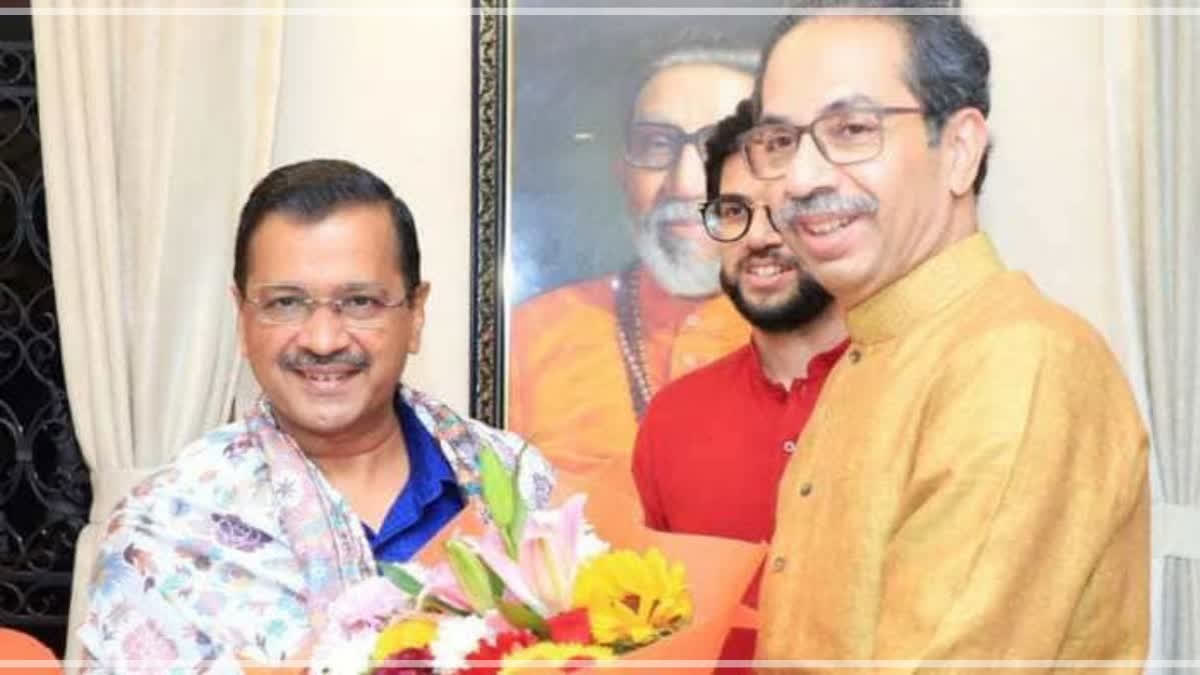Mumbai (Maharashtra):Delhi Chief Minister Arvind Kejriwal and Punjab Chief Minister Bhagwant Mann embarked on a two-day visit to Mumbai to seek support from opposition parties against the Centre's ordinance on control of administrative services in the national capital. As part of their efforts to unite opposition parties before the 2024 Lok Sabha elections, Kejriwal and Mann met with Shiv Sena (UBT) chief Uddhav Thackeray at his residence 'Matoshree' in suburban Bandra.
The meeting between Kejriwal, Mann, and Thackeray is significant, as it signals an attempt to form a united front against the Centre's ordinance. The leaders discussed the implications of the ordinance and the need for opposition parties to join forces. Prior to their meeting with Thackeray, Kejriwal and Mann met West Bengal Chief Minister Mamata Banerjee in Kolkata. The leaders discussed the ordinance and sought Banerjee's support in opposing it. Banerjee emphasized the need for opposition parties to stand against the ordinance.
Kejriwal further said the people of Delhi have "got support" from Mamata Banerjee and Trinamool Congress will oppose the Bill that the BJP-led government will bring in Parliament to replace its ordinance on control of services in the national capital. He said after the meeting that if the bill related to the ordinance is not passed in Rajya Sabha, it would be a semifinal of the next year's Lok Sabha elections. In a tweet on Wednesday, Kejriwal thanked Mamata Banerjee for her support.
"The people of Delhi got the support of Mamata Didi yesterday. When the Modi government will present a bill in Parliament against the people of Delhi, the TMC will oppose it in favour of the people of Delhi. On behalf of the people of Delhi, I thank Didi from the bottom of my heart," Kejriwal said.
Kejriwal's nationwide tour aims to rally support from opposition parties against the ordinance, which grants the Lieutenant Governor (L-G) the final say on the posting and transfer of bureaucrats serving the Delhi government. The ordinance was introduced by the Modi government in response to a Supreme Court order on May 11, which allowed Kejriwal and his ministers to have control over officials deputed to the Delhi government.
